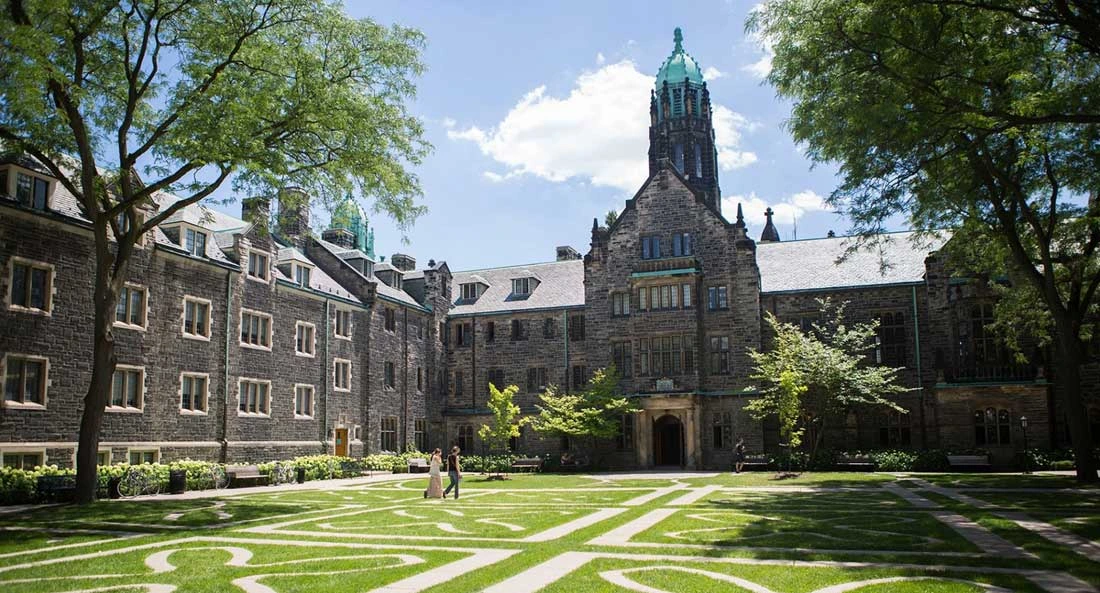
Introduction
The University of Toronto (U of T), established in 1827, is one of Canada’s premier institutions and a globally recognized leader in research and education. Renowned for its academic excellence, innovation, and vibrant campus life, it attracts a diverse pool of applicants from around the world each year. Aspiring students often wonder about their chances of admission and how to make their application stand out.
This guide provides an in-depth look at the University of Toronto’s acceptance rate, key statistics, historical trends, and factors that influence admissions. By the end, you’ll have actionable insights to help you navigate the application process successfully.
Understanding Acceptance Rates
What is an Acceptance Rate?
The acceptance rate is the percentage of applicants who are admitted to a university during a given admissions cycle. It is calculated by dividing the number of admitted students by the total number of applicants. This figure serves as an indicator of a university’s selectivity and competitiveness.
Why Acceptance Rates Matter
For prospective students, the acceptance rate offers insights into how competitive the admissions process is and helps them assess their likelihood of being admitted. For institutions, it reflects their popularity and prestige among applicants worldwide.
University of Toronto Acceptance Rate Overview
Current Acceptance Rate
The University of Toronto is known for its competitive admissions process. As of 2024, the overall acceptance rate ranges between 40% and 50%, depending on the program and level of study.
- Undergraduate Programs: The acceptance rate for undergraduate programs averages around 45%, with some programs being more selective than others.
- Graduate Programs: Graduate programs tend to be more competitive, with acceptance rates ranging between 25% and 40%.
Historical Trends in Acceptance Rates
Over the years, the University of Toronto has seen a steady increase in applications, leading to fluctuating acceptance rates:
- 2021-2022: Approximately 46% acceptance rate.
- 2022-2023: A slight decline to 43% due to a surge in applications.
- 2023-2024: Estimates suggest the acceptance rate remains stable, around 45%.
These trends highlight the university’s growing popularity while maintaining high academic standards.
Faculty and Program-Specific Acceptance Rates
Some programs at U of T have varying acceptance rates based on their demand and level of competition:
| Program | Acceptance Rate |
|---|---|
| Engineering | 32% |
| Computer Science | 25% |
| Arts and Science | 50% |
| Rotman Commerce | 30% |
| Medicine | 8% |
| Law | 17% |
Programs like Medicine and Computer Science are highly selective, requiring exceptional academic achievements and supplementary application materials.
Admission Statistics
Total Enrollment Figures
For the 2023-2024 academic year, the University of Toronto enrolled over 95,000 students across its three campuses (St. George, Scarborough, and Mississauga):
- Undergraduate Students: Approximately 74,000.
- Graduate Students: Around 21,000.
International Student Diversity
The University of Toronto is a global hub for education, attracting students from over 160 countries:
- International Students: Comprise about 27% of the total student body.
- Top Countries Represented: China, India, the United States, and South Korea.
This diversity enriches the campus culture, offering a dynamic and inclusive learning environment.
Factors Influencing Acceptance Rates
Several factors play a role in the University of Toronto’s admissions decisions:
Academic Performance
Strong academic performance is a key criterion for admission. For undergraduate applicants, a high school average of 88% or higher is often required, depending on the program. Graduate applicants typically need a GPA of 3.0 (on a 4.0 scale) or higher, along with relevant academic qualifications.
Extracurricular Involvement
U of T values well-rounded candidates who demonstrate leadership, creativity, and community involvement. Highlighting achievements outside the classroom can significantly enhance your application.
Program-Specific Requirements
Many programs have unique prerequisites. For instance:
- Engineering: Requires strong grades in mathematics and sciences, alongside an optional supplemental application.
- Medicine: Demands high MCAT scores, relevant experience, and a compelling personal statement.
- Rotman Commerce: Includes an interview and video essay as part of the application process.
Comparing U of T with Other Top Universities
When assessing the University of Toronto’s acceptance rate alongside other leading institutions:
- University of Toronto vs. McGill University:
- U of T’s acceptance rate (~45%) is slightly lower than McGill’s (~50%).
- University of Toronto vs. University of British Columbia (UBC):
- UBC’s acceptance rate (~52%) is higher, reflecting slightly less selectivity.
This comparison underscores U of T’s competitive edge while maintaining accessibility for a diverse applicant pool.
Key Takeaways and How to Prepare
The University of Toronto is a top choice for students seeking a world-class education in a dynamic, multicultural environment. To maximize your chances of admission:
- Excel Academically: Focus on achieving top grades, particularly in subjects relevant to your program.
- Enhance Your Profile: Engage in extracurricular activities, volunteer work, and leadership roles.
- Craft a Strong Application: Tailor your personal statement, highlight unique experiences, and ensure all application components are polished.
- Research Program Requirements: Familiarize yourself with specific prerequisites and deadlines for your chosen program.
Conclusion
The University of Toronto offers an unparalleled educational experience, blending academic rigor with cultural diversity. While the admissions process is competitive, a well-prepared application can significantly boost your chances of acceptance. Take the time to research, plan, and present your best self—your journey to joining one of the world’s leading universities begins here.
Frequently Asked Questions (FAQ)
For undergraduate programs, a minimum GPA of 3.0 on a 4.0 scale (or equivalent) is typically required, though competitive programs may demand a higher GPA (e.g., 3.8+ for Engineering or Rotman Commerce).
The University of Toronto is highly welcoming to international students, with 27% of its student body coming from abroad. Admission requirements are generally the same for domestic and international students, but competition may vary depending on the program. Additionally, international students need to meet English proficiency standards, such as achieving high scores on tests like TOEFL or IELTS.
Some of the most competitive programs include:Medicine: ~8% acceptance rate.
Computer Science: ~25% acceptance rate.
Engineering: ~32% acceptance rate.
Rotman Commerce: ~30% acceptance rate. These programs often require exceptional academic performance, strong supplemental applications, and sometimes interviews or additional tests.
U of T does not offer guaranteed entry, but high-achieving students can benefit from early consideration if they apply well before the deadlines. Some programs, such as those in professional faculties, may have specific pathways or partnership agreements with feeder schools.
Excel academically: Achieve high grades in courses relevant to your desired program.
Meet all program requirements: Ensure prerequisites, such as subject-specific grades and language proficiency, are met.
Stand out in your application: Highlight leadership roles, extracurricular activities, and a well-crafted personal statement.
Apply early: Submit your application ahead of the deadline for timely consideration






